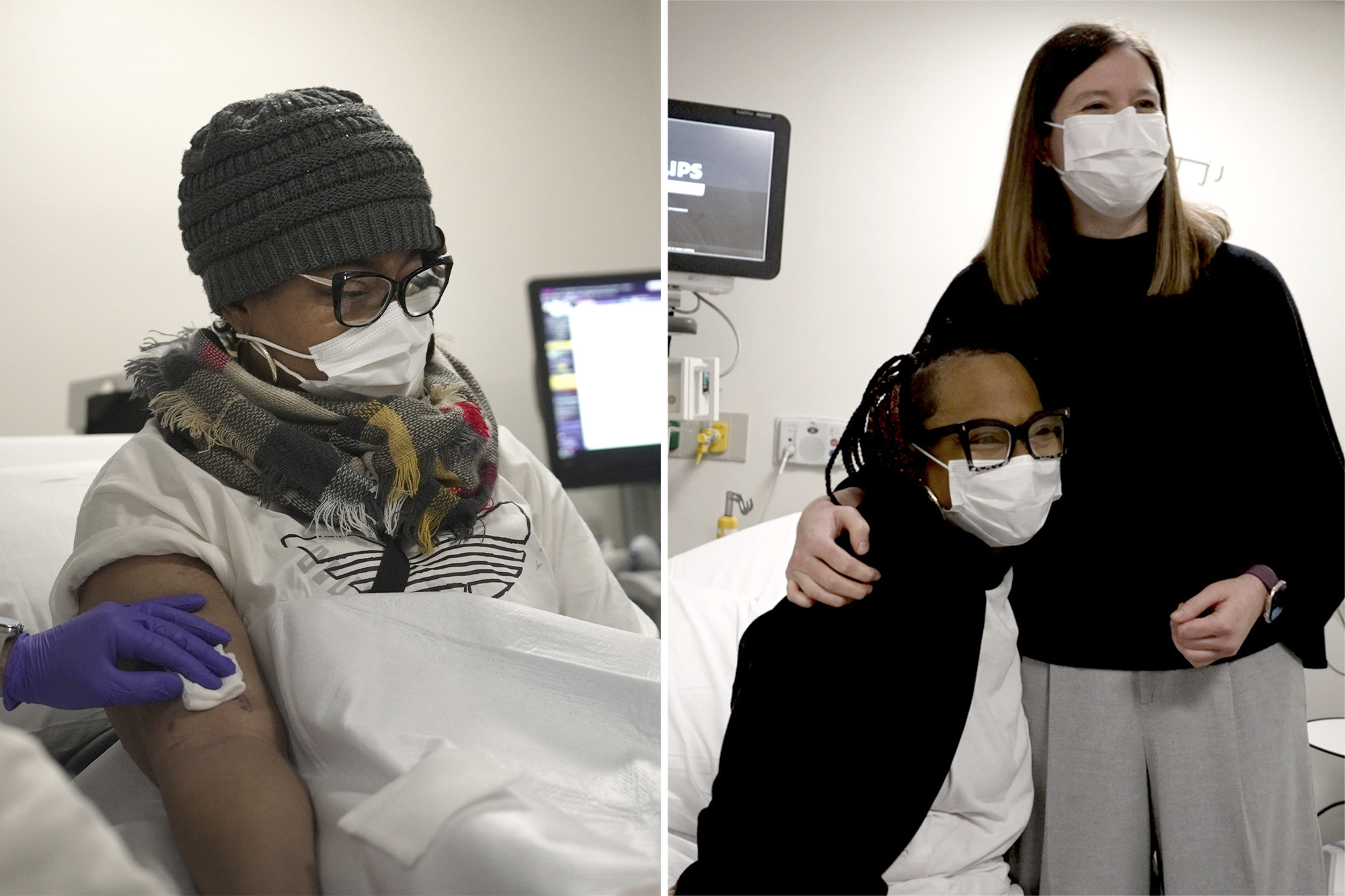A woman from Alabama who lived with a pig kidney for a 130-day record if the organ retired after her body began to reject it and returned to dialysis, announced a disappointment in continuous search for animal transplants on Friday.
Towana Looney recovers well of elimination surgery on April 4 at Nyu Langone Health and returned home to Gadsden, Alabama. In a statement, he thanked his doctors “the opportunity to be part of this incredible research.”
“Although the result is not what someone wanted, I know he learned a lot from my 130 days with a pig kidney, and that this can help and inspire many others on his journey to overcome kidney disease,” added Looney.
Scientists genetically alter pigs, so their organs are more human to deal with a serious shortage of transplantable human organs. More than 100,000 people are on the US Transplant List, most of them who need a kidney and thousands die waiting.
Prior to Looney’s transplant, only four Americans had received experimental xenotransplants of pork organs edited gene: two hearts and two kidneys that did not last longer than two months. The recipients, who were seriously sick before surgery, died.
Researchers are now trying these transplants in slightly less ill patients, such as Looney. A man from New Hampshire who received a pork kidney in January is going well and a rigorous study of pork kidneys transplants will begin to begin. Chinese researchers also recently announced a successful kidney xenotransplant.
Looney had been in dialysis since 2016 and did not qualify for a regular transplant: his body was abnormally prepared to reject a human kidney. So he sought a pig’s kidney and worked well: he was called “Superwoman” and lived longer than anyone with a pig organ edited by Gen, from its transplant from November 25 to the beginning of April when its body began to reject it.
The pioneer of Nyu Xenotransplant, Dr. Robert Montgomery, a Looney surgeon, said what caused the rejection to be investigated. But he said that Looney and his doctors agreed that it would be less risky to eliminate the kidney from the pig than to try to save it with higher and risky doses of anti-rejection drugs.
“We did the safe thing,” Montgomery told Associated Press. “It is not worse than before (the xenotransplant) and I would say that it is better because it had this 4 -month dialysis break.”
Shortly before the rejection began, Looney had suffered an infection related to his previous dialysis time and his anti-rejection drugs, which was slightly reduced, Montgomery said. At the same time, their immune system reactive after transplantation. These factors may have been combined to damage the new kidney, he said.
Rejection is a common threat after human organ transplants, and sometimes it costs patients to their new organ. Doctors face an act of balance in the decrease in patient immune systems enough to preserve the new organ while also allowing them to combat the infection.
It is an even greater challenge with xenotransplantation. While these pork organs have been altered to help prevent immediate rejection, patients still require drugs that are exceeding immunity. What drugs are best for avoiding different forms of rejection, said Dr. Tatsuo Kawai from Massachusetts General Hospital, another pioneer in Xenotransplant. He said that different research groups use different combinations.
“When we have more experience, we will know what type of immunosuppression is really necessary for xenotransplants,” Kawai said
Montgomery said Looney’s experience offers valuable lessons for the next clinical trial.
Making xenotransplant ultimately “will win with singles and doubles, without swinging -the fence every time we make one of these,” he said.
#Doctors #eliminate #Alabamas #womans #pigs #pigs #pork #registering #days #lot #learned
Image Source : nypost.com
